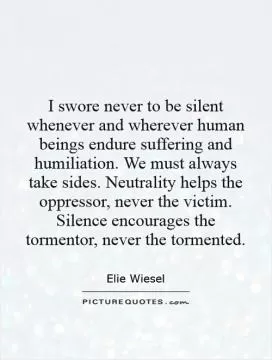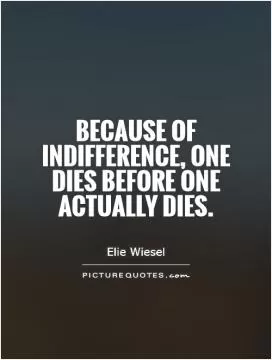After all, God is God because he remembers

After all, God is God because he remembers
Elie Wiesel, a Holocaust survivor and Nobel laureate, is known for his powerful writings that explore the depths of human suffering and the enduring power of faith. In his memoir "Night," Wiesel grapples with the question of how a loving God could allow such atrocities to occur. Despite his struggles with faith, Wiesel ultimately comes to the realization that God's existence is defined by his ability to remember.Wiesel's statement, "After all, God is God because he remembers," speaks to the idea that God's presence is felt most strongly in moments of remembrance and reflection. Throughout "Night," Wiesel recounts the horrors he witnessed in the concentration camps and the profound loss he experienced. In the face of such unimaginable suffering, Wiesel questions how God could remain silent and allow such evil to exist. However, he also recognizes that it is through remembering and bearing witness to these atrocities that God's presence is most keenly felt.
For Wiesel, God's memory is a source of both comfort and challenge. On one hand, God's remembrance of the suffering of the Jewish people serves as a testament to their endurance and resilience. It is a reminder that even in the darkest of times, there is still hope and the possibility of redemption. On the other hand, God's memory also serves as a call to action, a reminder that we must never forget the atrocities of the past and must work to ensure that such horrors are never repeated.
In the context of Wiesel's own life, the idea that "God is God because he remembers" takes on a deeply personal significance. As a survivor of the Holocaust, Wiesel bore witness to the worst of humanity and experienced firsthand the depths of human cruelty. Despite his own struggles with faith and doubt, Wiesel ultimately comes to see God's presence in the act of remembering and bearing witness to the suffering of his people.












 Friendship Quotes
Friendship Quotes Love Quotes
Love Quotes Life Quotes
Life Quotes Funny Quotes
Funny Quotes Motivational Quotes
Motivational Quotes Inspirational Quotes
Inspirational Quotes